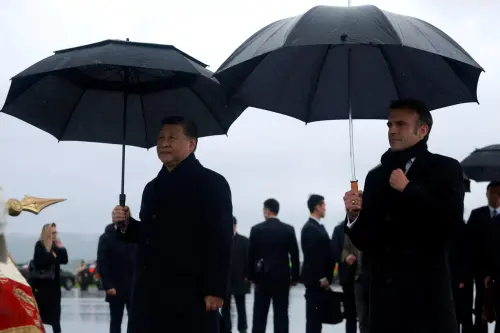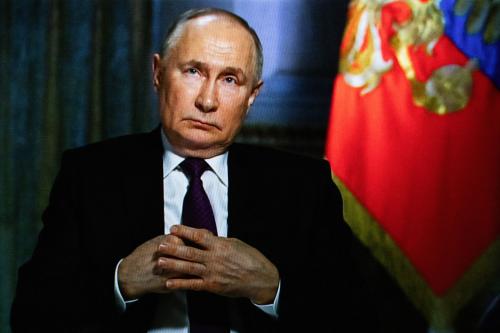Italian Premier Romano Prodi and his europhile allies in government have set the re-launch of Italy’s role in Europe as their overarching foreign policy goal. They claim that the previous euro-sceptic government led by Silvio Berlusconi had abandoned Italy’s well-established tradition of championing EU integration. So they have striven to steer Italy back into the mainstream of European debate over the constitution, enlargement and new integration plans. They also want the EU to reinforce its role in the UN and its presence around the world, particularly in the Middle East. Whether Prodi’s wafer-thin parliamentary majority and limited budget will prove adequate to achieve these foreign policy ambitions remains an open question.
Reviving the EU constitutional treaty is a top priority for Italy. The Prodi government aims to support German Chancellor Angela Merkel’s efforts to re-invigorate the process of constitutional reform during Berlin’s six-month EU presidency, which began in January. But, unlike the Chancellor, both Prodi and his foreign minister, Massimo D’Alema have openly accepted that the rejected constitutional treaty will eventually have to be renegotiated.
D’Alema has proposed that a “core treaty” should incorporate most major reforms contained in the constitutional treaty, including a full-time president of the European Council, a European foreign minister and the “double majority” voting system. While this proposal may well be opposed by EU states where popular referendums have already rejected the constitutional treaty—as well as by those that have put the ratification process on hold—D’Alema’s suggestion could provide a rallying platform for pro-constitution countries.
With regard to EU enlargement, the current premier is more cautious than his predecessor—Berlusconi even mused about the accession of Russia and Israel. Prodi considers that EU institutions must be strengthened first. However, his governing coalition supports the full integration of the western Balkans to avoid them becoming an enclave of instability. The government also wants Turkey to join the Union, rejecting calls for Turkey to be excluded because of its Muslim religious and cultural identity, despite deep disquiet on the issue among right-wing and Catholic groups.
To assuage popular and political fears that endless EU enlargement will jeopardise European cohesion, both Prodi and D’Alema want the Union to establish clear external borders. They therefore oppose the prospect of EU membership being offered to the Ukraine or other post-Soviet states, favouring better cooperation with these nations through the European Neighbourhood Policy instead.
The Prodi government also wants the Union to play a greater role on the world stage. D’Alema has emphasized, in particular, that the EU can be more actively involved in the Middle East, presenting the high-profile EU military mission in Lebanon as a symbol of its potential as a global player.
This political strategy is, however, far from risk-free. Public perception that EU forces failed to achieve their declared objectives in Lebanon could well spark a backlash at home and damage the EU’s image abroad.
The Italian government is also seeking progress on the long-standing issue of EU involvement at the UN during its current stint as a non-permanent member of the Security Council, which began in January 2007. The government has promised to promote closer consultation between EU states on Security Council agenda items to prepare a common European position. D’Alema has also reiterated that Italy wants the EU countries to have joint representation at international financial institutions too. However, Italy and Germany are at loggerheads over Security Council reform. Rome opposes any increase in the number of permanent members, while Berlin wants a permanent seat for itself.
This bold foreign policy programme risks stumbling over two major domestic obstacles. First, Prodi’s center-left governing coalition is highly fragmented and relies on a narrow parliamentary majority. It also includes radical leftist groups which may press the government to renege on some of Italy’s international commitments, such as participation in the NATO mission in Afghanistan. This would deal a serious blow to the government’s international prestige.
Second, budget constraints impose ever tighter limits on the resources that Prodi government can devote to external obligations. Unless it manages to reverse this trend—and keep coalition partners in line—the credibility of Italy as an international partner and ally will suffer significantly.


Commentary
Italy’s Grand Plans for EU Foreign Policy Rest on Clay Feet at Home
March 1, 2007